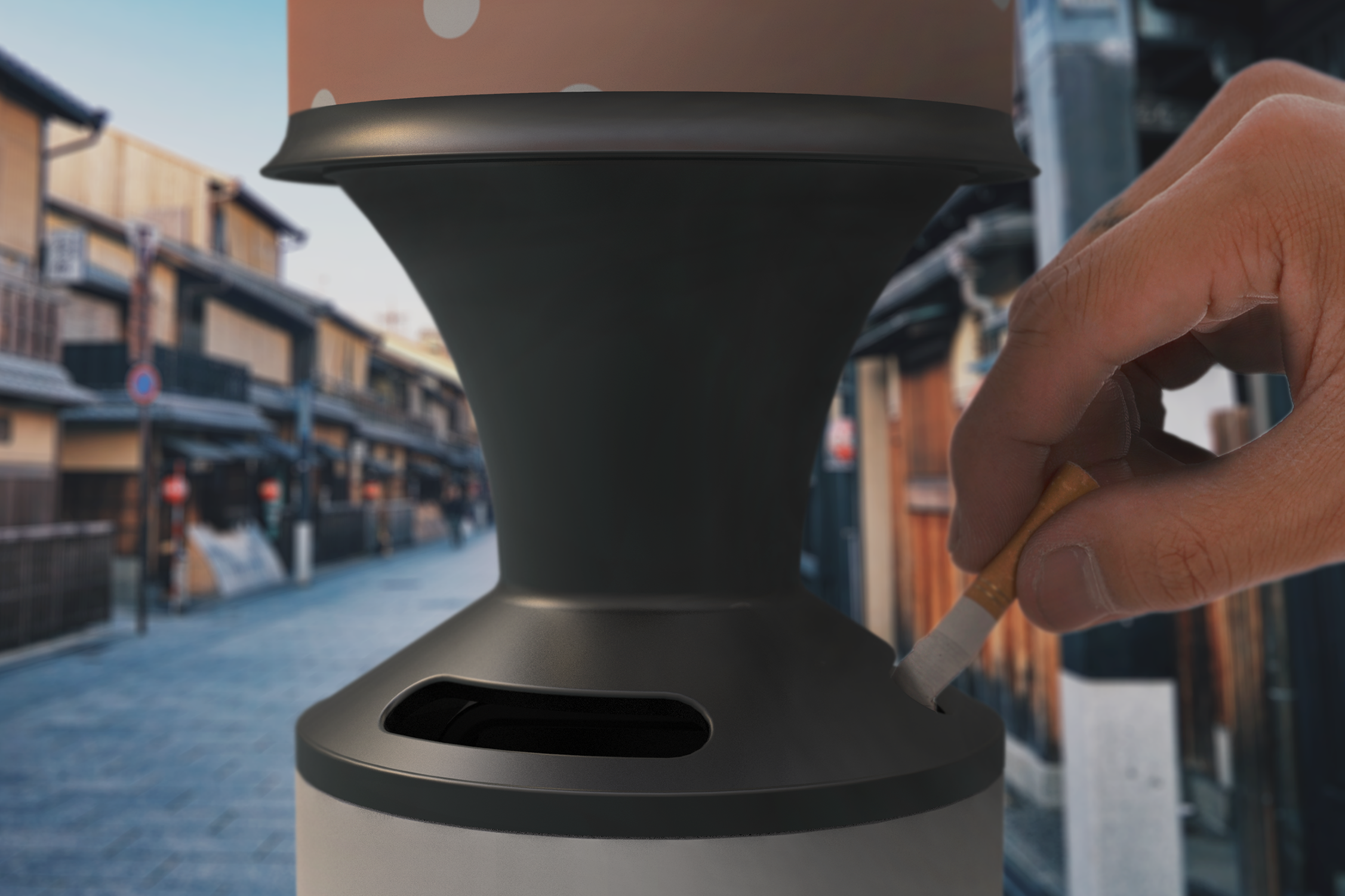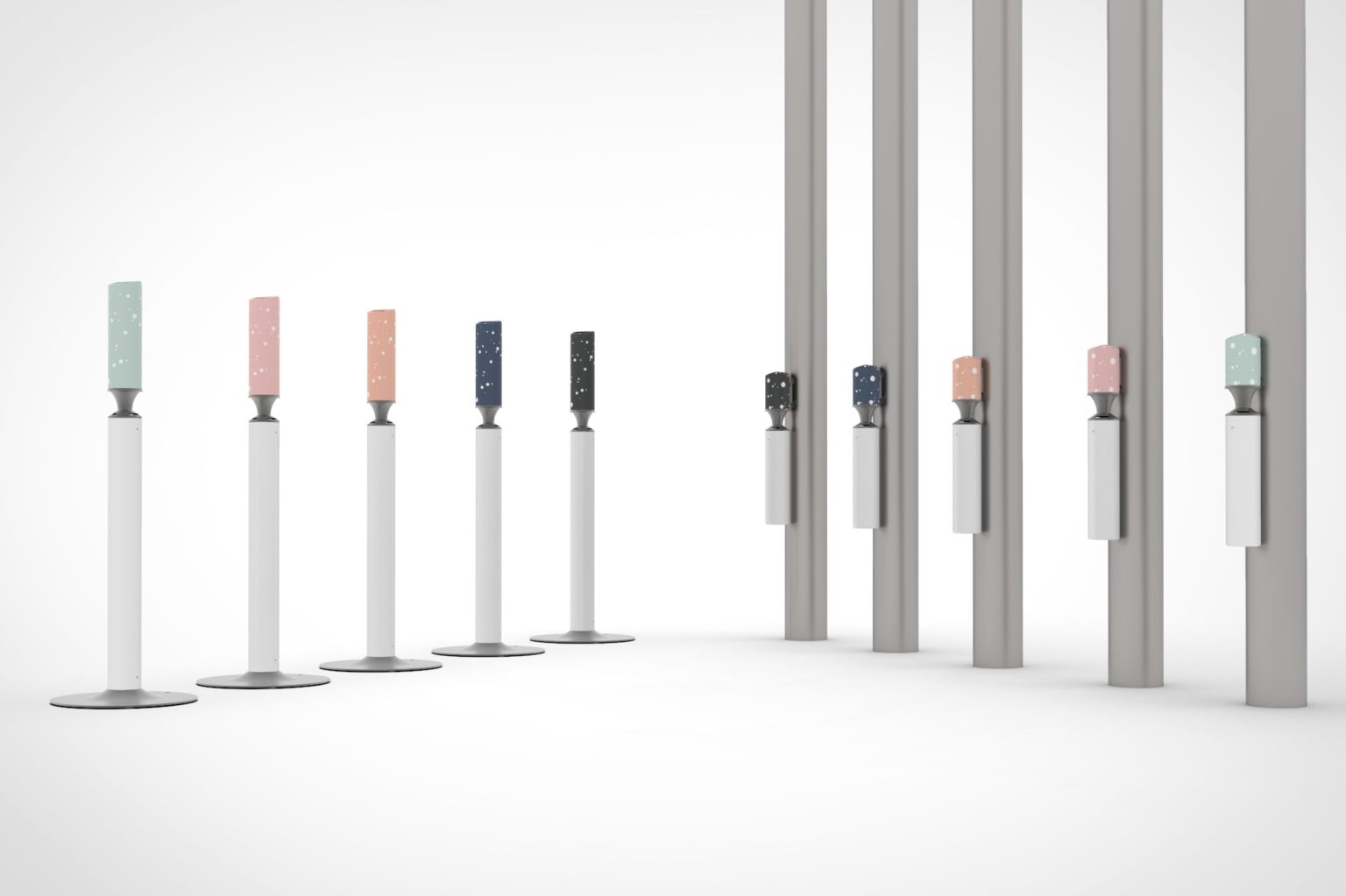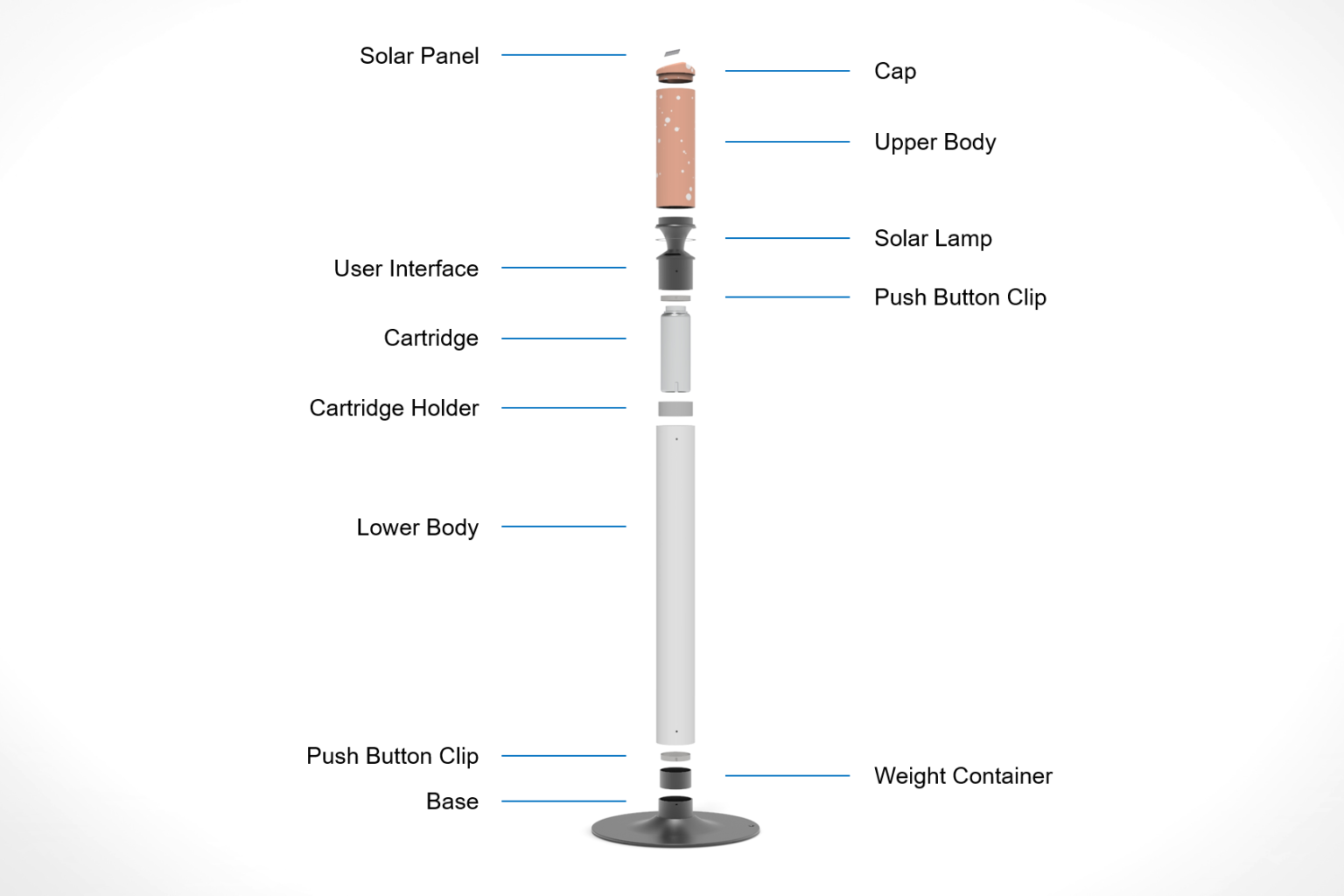Sustainable Way: Cigarette Butt Receptacles Supporting Sustainable Behavior
Commonly mistaken for cotton, cigarette filters are actually made out of plastic that, once littered, can have devastating impacts on our environment. With over 18 billion of these single-use plastic items purchased each day, cigarette butts are the most littered item in the world. Luckily, cigarette butts can be recycled by select companies like Terracycle, yet many barriers prevent people who smoke from acting in a more sustainable way.
Sustainable Way merges systems design with Design for Sustainable Behavior to prevent cigarette butt litter by providing access to receptacles in high-litter locations like bars, engaging users to properly dispose of their cigarette butts and raising awareness of plastic filters and the value in recycling them.
Sustainable Way enables people to carry out their everyday activities in a way that reduces negative environmental impacts through the development of a family of cigarette butt receptacles made, in part, by recycled cigarette butts.
Sustainable Way merges systems design with Design for Sustainable Behavior to prevent cigarette butt litter by providing access to receptacles in high-litter locations like bars, engaging users to properly dispose of their cigarette butts and raising awareness of plastic filters and the value in recycling them.
Sustainable Way enables people to carry out their everyday activities in a way that reduces negative environmental impacts through the development of a family of cigarette butt receptacles made, in part, by recycled cigarette butts.
Artist Statement
Coming from a background in mechanical engineering, Logan Good merges industrial design with engineering and social entrepreneurship to develop work not only sophisticated in form, but also comprehensive in function with well-thought-out systems design and accompanying business model.
To gain a global perspective on design, Logan spent a year living in London and Tokyo as part of the Global Innovation Design track of the Master of Industrial Design program. Logan’s mission is to create business cases to address some of the world’s most pressing challenges. His current focus lies at the pollution-poverty nexus, creating impactful products coupled with innovative business models to address the global plastic pollution challenge.
To gain a global perspective on design, Logan spent a year living in London and Tokyo as part of the Global Innovation Design track of the Master of Industrial Design program. Logan’s mission is to create business cases to address some of the world’s most pressing challenges. His current focus lies at the pollution-poverty nexus, creating impactful products coupled with innovative business models to address the global plastic pollution challenge.




